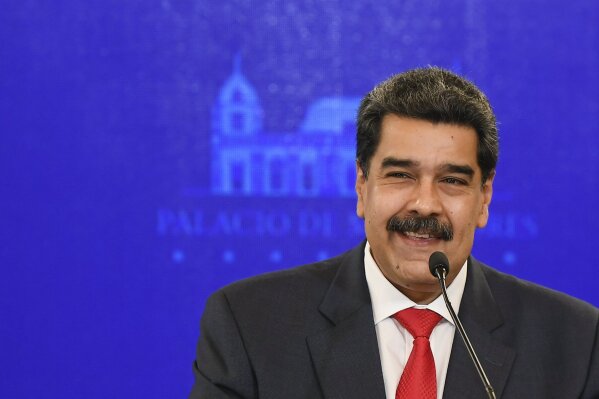Official: Maduro allies win 91% of seats in Venezuela vote
CARACAS, Venezuela (AP) — Election officials say political allies of President Nicolás Maduro have won 91% of seats in congressional balloting that was boycotted by his adversaries as fraudulent.
Venezuela’s National Elections Council, which is loyal to Maduro, said that as of Thursday, Maduro’s United Socialist Party of Venezuela had won 253 of 277 seats in the National Assembly.
Maduro’s allies won 69% of the votes, which gave them the overwhelming share of seats based on distribution system.
In a distant second place, with 11 seats, was Democratic Action, a longstanding opposition party whose leadership was taken over by Maduro allies earlier this year under a ruling by the pro-government Supreme Court.
The takeover of Democratic Action and other parties was among the reasons that the opposition coalition led by outgoing congressional leader Juan Guaidó refused to run in Sunday’s election.
The result leaves Maduro in control of the only branch of government not previously held by his allies.
The term of the outgoing congress ends Jan. 5, but the opposition lawmakers vow to maintain their roles, arguing the election that replaced them was fraudulent.
The U.S. and European Union also have declared Sunday’s results invalid and say they will continue to recognize Guaidó as the country’s legitimate, if interim president, because they say Maduro’s reelection also was unconstitutional.
Guaidó's opposition is holding its own referendum culminating on Saturday.
It asks Venezuelans at home and abroad to vote through cellphone applications or in person on whether they want Maduro’s rule end so fresh presidential and legislative elections can be held.
Maduro maintains power with military backing and support from allies including Iran, Russia, China and Turkey. He celebrated Sunday’s election as a victory saying it will help him end violence and international interference he blames on his adversaries.
Venezuela’s deepening political and economic crisis has sparked the region’s largest flood of migration, with at least 5 million people in recent years fleeing hyperinflation, unreliable electrical service and shortages of basics like natural gas and gasoline.



